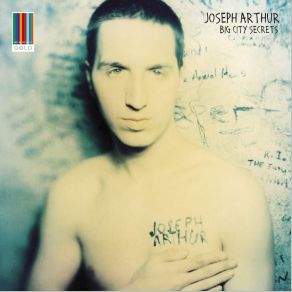Big City Secrets
Download links and information about Big City Secrets by Joseph Arthur. This album was released in 1997 and it belongs to Rock, World Music, Alternative genres. It contains 12 tracks with total duration of 55:47 minutes.

|
|
|---|---|
| Artist: | Joseph Arthur |
| Release date: | 1997 |
| Genre: | Rock, World Music, Alternative |
| Tracks: | 12 |
| Duration: | 55:47 |
| Buy it NOW at: | |
| Buy on iTunes $9.99 | |
| Buy on Amazon $9.49 | |
| Buy on Amazon $9.49 | |
Tracks
[Edit]| No. | Title | Length |
|---|---|---|
| 1. | Big City Secrets | 4:37 |
| 2. | Mercedes | 6:18 |
| 3. | Mikel K | 3:54 |
| 4. | Good About Me | 4:58 |
| 5. | Daddy's On Prozac | 4:05 |
| 6. | Marina | 4:03 |
| 7. | Birthday Card | 5:36 |
| 8. | Crying Like A Man | 6:16 |
| 9. | Porcupine | 4:42 |
| 10. | Dessert | 1:05 |
| 11. | Haunted Eyes | 4:44 |
| 12. | Bottle Of You | 5:29 |
Details
[Edit]Joseph Arthur refers to his music as "someone struggling to heal over experimental folk-rock." His major-label career began after he received an unexpected answering machine message from Peter Gabriel offering him a contract on Gabriel's Real World label. Arthur's music employs a wide range of musical influences, adorning his songs with instruments as diverse as hurdy gurdy, corn horn, Venetian xylophone, caxixi, birimbau and harmonic missles. Experimental folk-rock is an apt label for such eclectic instrumentation. As for "struggling to heal," Arthur's strategy appears to be to heal through catharsis. His lyrics are populated with angsty lines like "You're easy for me to bleed on," "Put my daddy on Prozac, I don't think I want him back" and "You became a spider as I fed you the blood from my nose." All that "healing" can get to be a bit overbearing, especially when expressed in Arthur's tortured vocals. In his most restrained moments, his voice resembles David Rice or Jeffrey Gaines, but at his most extreme he's a dead ringer for Billy Corgan of the Smashing Pumpkins. The songwriting is at its best when Arthur uses his sharp ear for melody, as on "Mikel K," "Big City Secret," and the harmonica-driven "Mercedes," which features background vocals from Brian Eno and Gabriel himself. The album's weaker offerings ("Desert," "Porcupine") have a tendency to drone tunelessly. But even then the weakness of the melody is somewhat mitigated by the inventiveness of the arrangements, and it's easy to see what attracted Gabriel to this promising artist.